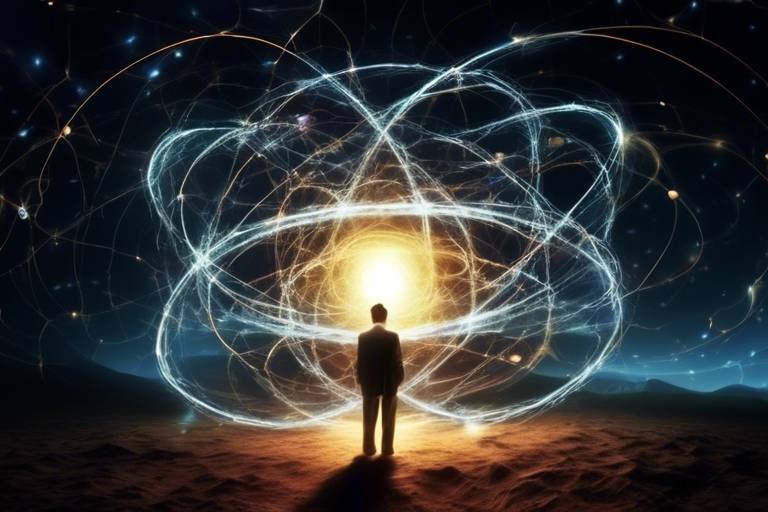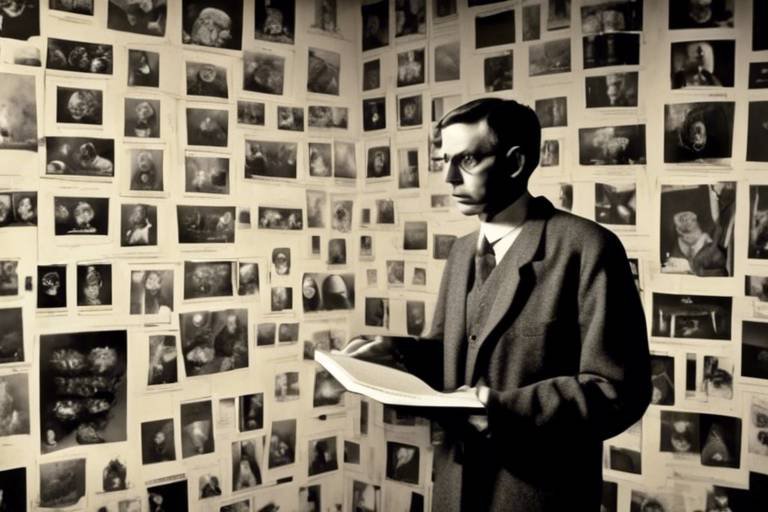Philosophy and Quantum Physics - Are We in a Simulation?
The intersection of philosophy and quantum physics is a fascinating realm where the mysteries of existence and the fabric of reality intertwine. Have you ever pondered whether what you perceive as reality is merely an elaborate illusion? This thought-provoking question is at the heart of the simulation hypothesis, which suggests that our universe could be a sophisticated simulation created by advanced civilizations. Imagine living in a world where every experience, every interaction, and every moment is meticulously crafted by unseen architects of reality. It’s a concept that not only challenges our understanding of existence but also invites us to reconsider the very nature of consciousness itself.
As we delve deeper into this captivating topic, we will explore how quantum mechanics—often regarded as the most perplexing branch of physics—challenges traditional notions of reality. Quantum phenomena, such as superposition and entanglement, reveal a universe that is far more complex than our everyday experiences suggest. Could it be that our perceptions are merely the surface of a deeper, quantum reality? This question leads us to a philosophical inquiry about what it means to exist and how consciousness interacts with the universe around us.
In this exploration, we will also consider the implications of these ideas on our understanding of free will and determinism. Are we simply players in a cosmic game, or do we possess the agency to shape our own destinies? The answers may lie in the very fabric of quantum reality and our place within it. By examining the intricate relationship between consciousness and reality, we may uncover profound insights that not only challenge our beliefs but also expand our understanding of what it means to be alive in this seemingly simulated universe.
The simulation hypothesis posits that our perceived reality may be an artificial construct, akin to a highly advanced video game. This idea has gained traction among philosophers, scientists, and tech enthusiasts alike. Imagine if our entire existence was merely lines of code running on a supercomputer, with every interaction and event predetermined by the programmers. The implications of such a reality are staggering and raise essential questions about the nature of existence. Are we simply characters in a story, or do we have the freedom to write our own narratives?
Furthermore, this hypothesis challenges the very foundation of how we understand consciousness. If we are indeed living in a simulation, what does that say about our thoughts, feelings, and experiences? Are they genuine, or merely programmed responses? This inquiry leads us to explore the philosophical dimensions of reality and consciousness, as we seek to understand our place in this potential simulation.
Quantum mechanics has revolutionized our understanding of the universe, revealing that reality is not as straightforward as it seems. Traditional physics operates on the assumption that particles exist in definite states; however, quantum mechanics introduces the concept of superposition, where particles can exist in multiple states simultaneously until they are observed. This phenomenon raises profound questions about the nature of reality itself. Are we merely observers in a universe that exists independently, or do our observations play a crucial role in shaping that reality?
Superposition challenges our conventional understanding of existence. Picture a coin spinning in the air; it is neither heads nor tails until it lands. Similarly, quantum particles exist in a state of potentiality until observed. This leads us to wonder if our perceptions align with the underlying quantum world. Are our experiences merely snapshots of a reality that is constantly in flux? The implications of superposition extend far beyond physics, inviting us to reconsider the very nature of existence and what it means to truly perceive reality.
The observer effect in quantum mechanics suggests that the act of observation itself alters the state of a particle. This phenomenon invites a rich tapestry of philosophical discussions about the role of consciousness in shaping reality. If our awareness can influence the physical world, what does that say about the power of our thoughts and intentions? Are we co-creators of our universe, or are we merely passive observers? This question leads us to explore the intricate relationship between consciousness and reality.
Quantum entanglement illustrates how particles can become intertwined, affecting one another regardless of distance. This phenomenon challenges our understanding of separateness in the universe and hints at deeper underlying truths. Imagine two entangled particles as dance partners, moving in perfect sync despite being light-years apart. This interconnectedness suggests that everything in the universe is linked in ways we are only beginning to comprehend, further complicating our understanding of reality and existence.
The implications of quantum mechanics extend into philosophy, prompting debates about determinism, free will, and the nature of consciousness. If our reality is indeed a simulation, what does that mean for our understanding of choice? Are our decisions predetermined by the programming of the simulation, or do we possess genuine agency? As we navigate these philosophical waters, we strive to comprehend our place within a potentially simulated reality and the profound questions it raises about existence.
As we explore the relationship between consciousness and reality, we encounter the critical question: Does consciousness create reality, or does it merely perceive it? This inquiry ties directly into the simulation hypothesis, suggesting that our awareness may play a pivotal role in shaping the universe we inhabit. If consciousness is fundamental to the universe, could it be that our very thoughts and intentions influence the fabric of reality itself?
Examining the role of consciousness in shaping our reality leads us to intriguing theories that suggest consciousness may be a fundamental aspect of existence. Some argue that consciousness is not merely a byproduct of brain activity but a primary force that influences the universe. This perspective invites us to consider the profound implications of our thoughts, emotions, and intentions as active participants in the creation of our reality. Are we, in essence, the architects of our own existence?
Various philosophical perspectives offer unique insights into the nature of consciousness and reality. From idealism, which posits that reality is fundamentally mental, to materialism, which views consciousness as a byproduct of physical processes, each perspective provides a different lens through which to explore our existence. Additionally, panpsychism suggests that consciousness is a fundamental feature of the universe, present in all things, further complicating our understanding of reality. As we navigate these diverse viewpoints, we uncover a rich tapestry of thought that challenges our beliefs and expands our understanding of existence within a potential simulation.
- What is the simulation hypothesis? The simulation hypothesis suggests that our perceived reality may be an artificial simulation created by advanced civilizations.
- How does quantum mechanics challenge our understanding of reality? Quantum mechanics introduces concepts like superposition and entanglement, which suggest that reality is far more complex than our everyday experiences indicate.
- What is the observer effect? The observer effect refers to the phenomenon where the act of observation alters the state of a particle, raising questions about the role of consciousness in shaping reality.
- What are the philosophical implications of quantum mechanics? Quantum mechanics prompts debates about determinism, free will, and the nature of consciousness, challenging our understanding of existence.
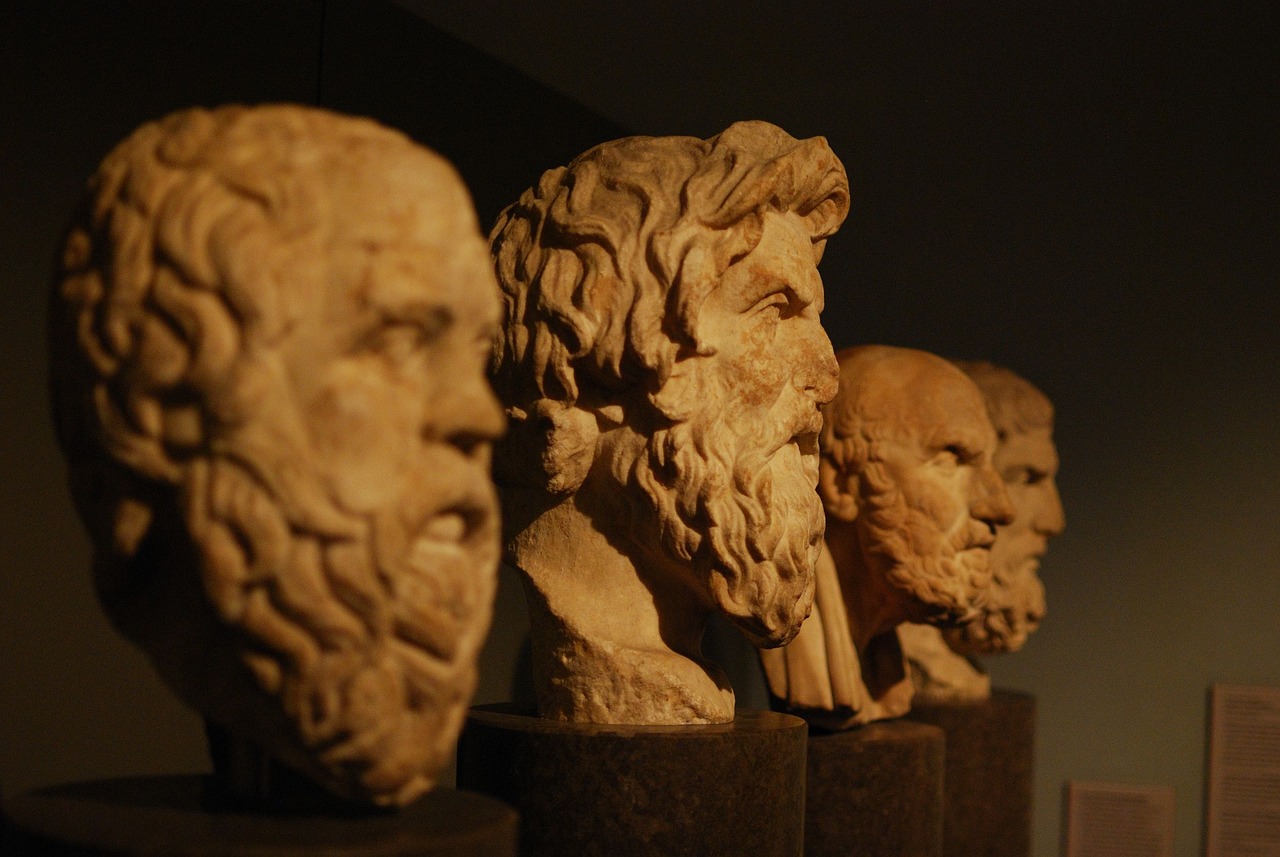
The Simulation Hypothesis
The Simulation Hypothesis is a captivating idea that has sparked the imagination of philosophers, scientists, and dreamers alike. Imagine for a moment that everything you perceive—your experiences, emotions, and even the vast universe around you—might just be a sophisticated illusion, a meticulously crafted simulation generated by an advanced civilization. It's a thought that can be both thrilling and unsettling, isn't it? This hypothesis suggests that our reality, as we know it, could be a product of artificial intelligence or highly advanced technology, raising profound questions about the nature of existence and consciousness.
At its core, the simulation hypothesis posits that if technological advancement continues at its current pace, future civilizations could create simulations so intricate that the beings within them would be unaware they are living in a fabricated reality. Think about video games today; they are getting more lifelike and immersive by the day. Now, imagine a simulation that is indistinguishable from what we perceive as 'real' life. How would we even know if we were living in such a construct? This notion leads to a myriad of philosophical inquiries about the essence of reality and our place within it.
One of the most compelling arguments for the simulation hypothesis comes from the philosopher Nick Bostrom, who proposed a trilemma: either civilizations become extinct before reaching a post-human stage, or they choose not to run simulations of their evolutionary history, or we are almost certainly living in a simulation. This idea challenges our understanding of existence itself. If we are indeed living in a simulation, what does that mean for our consciousness? Are we merely puppets in a digital play, or do we possess genuine agency within this framework? The implications are both exhilarating and terrifying.
To further illustrate the nuances of the simulation hypothesis, consider the following points:
- Existence of Advanced Civilizations: The hypothesis relies on the assumption that advanced civilizations capable of creating such simulations exist or will exist.
- Technological Feasibility: As technology progresses, the ability to create detailed simulations may become increasingly plausible.
- Philosophical Ramifications: If we are in a simulation, it raises questions about free will, morality, and the nature of reality itself.
As we ponder these questions, it's vital to recognize that the simulation hypothesis is not just a theoretical exercise; it has practical implications that touch on our understanding of consciousness, existence, and the universe. If we were to accept that we might be living in a simulation, it could fundamentally alter our perspective on life. Would we value our experiences differently? Would the pursuit of knowledge take on new significance? These questions beckon us to explore the deeper layers of our existence.
In the end, the simulation hypothesis serves as a mirror reflecting our deepest fears and aspirations about reality. It challenges us to confront the unknown and to consider the possibility that our understanding of existence is just the tip of the iceberg. As we delve deeper into the realms of philosophy and quantum physics, we may find that the answers we seek lie not in the observable universe, but in the very fabric of our consciousness and the nature of reality itself.

Quantum Mechanics and Reality
Quantum mechanics is a fascinating realm that fundamentally challenges our traditional notions of reality. Imagine peering through a kaleidoscope where every twist reveals unexpected patterns and colors; this is akin to the world of quantum physics, where particles behave in ways that defy our everyday experiences. At its core, quantum mechanics reveals a universe that is not just a collection of solid objects but rather a dynamic interplay of probabilities and possibilities. It invites us to reconsider everything we thought we knew about the fabric of reality.
One of the most mind-bending concepts in quantum mechanics is superposition. In classical physics, we understand objects to exist in a specific state at any given time. However, quantum mechanics introduces the idea that particles can exist in multiple states simultaneously until they are observed. Picture a spinning coin: while it's in the air, it's both heads and tails at once, only settling into one state when it lands. This principle raises profound questions about the nature of existence itself. Are we merely observing a reality that is determined at the moment of our observation, or is there something deeper at play?
Moreover, the phenomenon known as the observer effect adds another layer of complexity. When we observe a quantum system, we actually influence its behavior. This suggests that consciousness itself plays a pivotal role in shaping the reality we experience. It's as if the universe is a grand stage, and our act of observation is akin to pulling back the curtain to reveal a scene that was previously hidden. This leads us to ponder: is reality an objective truth, or is it a subjective experience shaped by our consciousness?
Then there's quantum entanglement, a phenomenon that showcases the interconnectedness of particles. When two particles become entangled, the state of one instantly influences the state of the other, regardless of the distance separating them. Imagine two friends who can communicate telepathically, no matter how far apart they are; this is the essence of quantum entanglement. It challenges our understanding of separateness and locality, suggesting that everything in the universe may be intricately connected in ways we have yet to fully comprehend.
As we delve deeper into the implications of quantum mechanics, we find ourselves at a philosophical crossroads. The very fabric of reality seems to be woven with threads of uncertainty and interconnectedness, prompting us to question our assumptions about determinism and free will. Are our choices truly our own, or are they predetermined by a complex web of quantum interactions? This intersection of science and philosophy sparks a lively debate about the nature of consciousness and existence itself.
In summary, quantum mechanics not only reshapes our understanding of the physical universe but also invites us to explore profound philosophical questions about reality, consciousness, and our place within this potentially simulated existence. As we continue to unravel these mysteries, we may find that the answers lie not just in the equations of physics but also in the very essence of what it means to be aware.
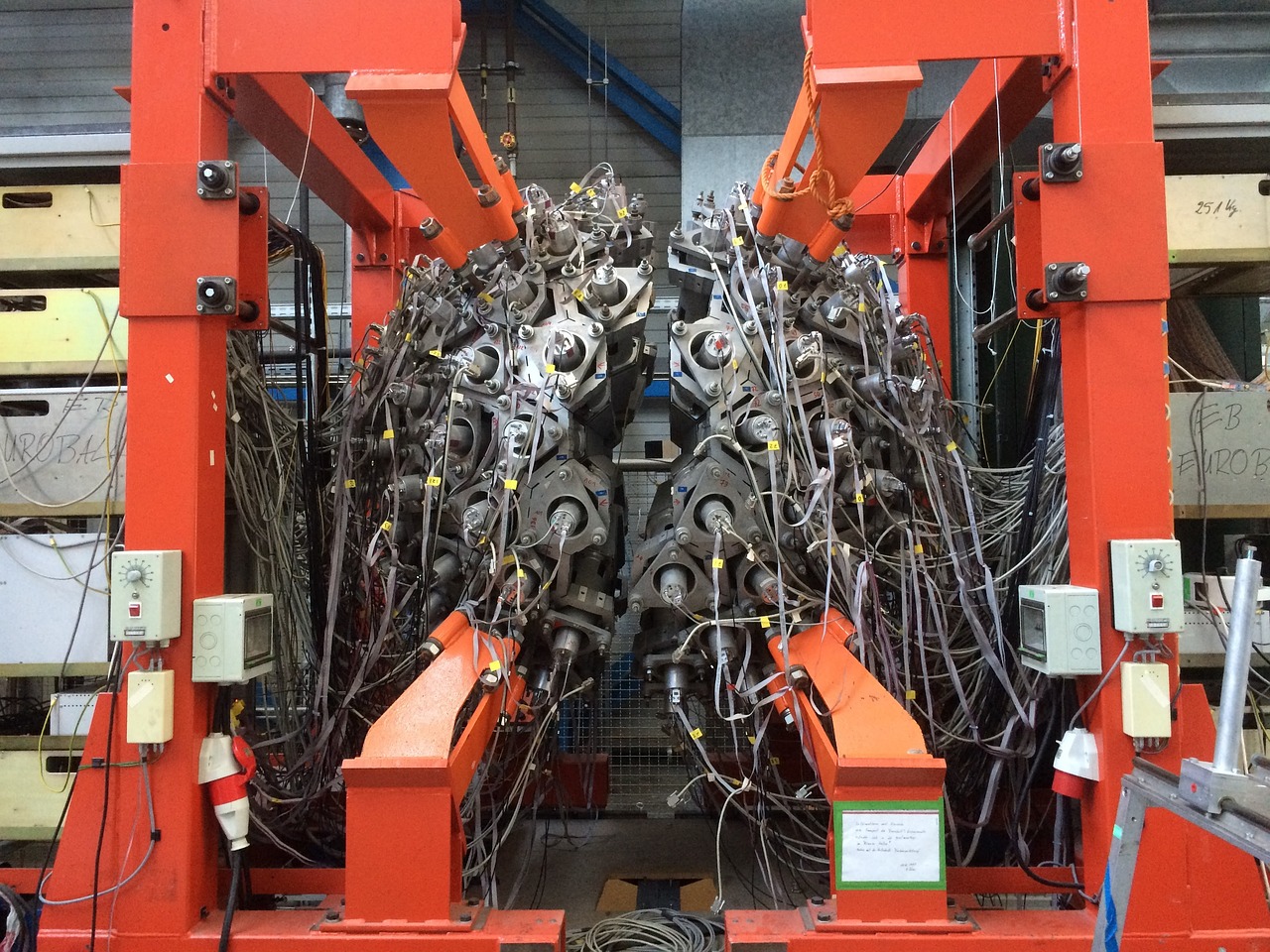
Superposition and Its Implications
Superposition is one of the most fascinating and perplexing principles in quantum mechanics. Imagine a coin spinning in the air; while it's spinning, it's not just heads or tails, but rather a combination of both until it lands. This analogy illustrates the concept of superposition, where particles exist in multiple states at once until they are observed. This phenomenon challenges our conventional understanding of reality and raises profound questions about what it means to perceive something as "real." Are we merely experiencing a snapshot of a reality that is far more complex and nuanced than we can fathom?
The implications of superposition extend beyond the realm of physics and into the philosophical domain. If particles can exist in multiple states simultaneously, what does that say about our own existence? Are we also in a state of superposition, living out multiple potential realities that converge into one upon observation? This idea can be both exhilarating and daunting, as it suggests that the universe may not be as deterministic as we once believed. Instead, it hints at a reality that is fluid and ever-changing, shaped by our perceptions and interactions.
One of the most intriguing aspects of superposition is its connection to the observer effect. This principle states that the act of observation can alter the state of a particle, leading to questions about the role of consciousness in shaping reality. If our very act of observing influences the outcome, then how significant is our consciousness in the grand scheme of the universe? Are we mere witnesses, or do we play an active role in creating the reality we experience?
To delve deeper into the implications of superposition, consider the following key points:
- Reality is not fixed: The idea of superposition suggests that reality is not a predetermined path but rather a spectrum of possibilities.
- Consciousness matters: The observer effect indicates that our consciousness may have a direct impact on the physical world.
- Potentiality vs. actuality: Superposition raises the question of how potential states become actualized in our perceived reality.
In summary, superposition is more than just a quirky quantum phenomenon; it challenges our fundamental understanding of existence and reality. It invites us to ponder the nature of consciousness, the act of observation, and the very fabric of the universe. As we explore these ideas, we may find ourselves questioning not just the nature of reality, but our place within it. Are we the observers, or are we also the creators of the worlds we inhabit?
- What is superposition in quantum mechanics?
Superposition is the principle that particles can exist in multiple states at the same time until they are observed or measured.
- How does superposition relate to reality?
Superposition suggests that reality may not be fixed and can exist in a state of potentiality until observed, raising questions about the nature of existence.
- What is the observer effect?
The observer effect is the phenomenon where the act of observation alters the state of a particle, indicating that consciousness may play a role in shaping reality.

Observer Effect
The in quantum mechanics is a captivating phenomenon that challenges our understanding of reality. At its core, this effect suggests that the mere act of observing a particle can alter its state. Imagine you're peeking into a secret garden; your presence changes the way the flowers bloom. Similarly, the act of observation in the quantum realm can influence how particles behave. This concept raises profound questions about the nature of existence and the role of consciousness in shaping our reality.
To illustrate this further, consider a classic experiment involving photons, which are particles of light. When scientists attempt to measure the position of a photon, they find that the act of measurement causes the photon to behave in a specific way, collapsing its wave function into a defined state. Before observation, the photon exists in a state of superposition, where it can be in multiple states at once. However, once observed, it chooses a state, almost as if it is aware of being watched. This leads us to ponder: is consciousness itself a fundamental component of the universe, or is it merely a bystander in the grand cosmic play?
Moreover, the observer effect invites us to reflect on the implications for our understanding of free will and determinism. If our observations can influence the behavior of particles, what does that say about our ability to shape our own reality? Are we active participants in the unfolding of the universe, or are we just passive observers, subject to the whims of a predetermined simulation? These questions are not just theoretical; they touch upon the essence of our existence and consciousness.
In the realm of philosophy, the observer effect sparks debates about the relationship between the observer and the observed. Some philosophers argue that this effect implies a deep interconnectedness in the universe, suggesting that everything is linked in a web of influence. Others contend that it raises skepticism about the objective nature of reality itself. If reality can be altered by observation, can we ever truly know what is 'real'?
As we delve deeper into the implications of the observer effect, we find ourselves at the intersection of science and philosophy, where questions about consciousness, reality, and existence converge. This exploration not only expands our understanding of quantum mechanics but also invites us to reconsider our place in the universe. Are we merely observers in a grand simulation, or do we hold the power to shape our own reality? The answers remain elusive, yet the journey of inquiry is what makes this exploration so exhilarating.
- What is the observer effect? The observer effect refers to the phenomenon where the act of observing a particle can change its state, influencing how it behaves.
- How does the observer effect relate to consciousness? It raises questions about whether consciousness plays a fundamental role in shaping reality or if it is merely a passive observer.
- Does the observer effect imply that reality is subjective? Yes, it suggests that our perceptions and observations can influence what we consider to be 'real,' leading to philosophical debates about the nature of reality.
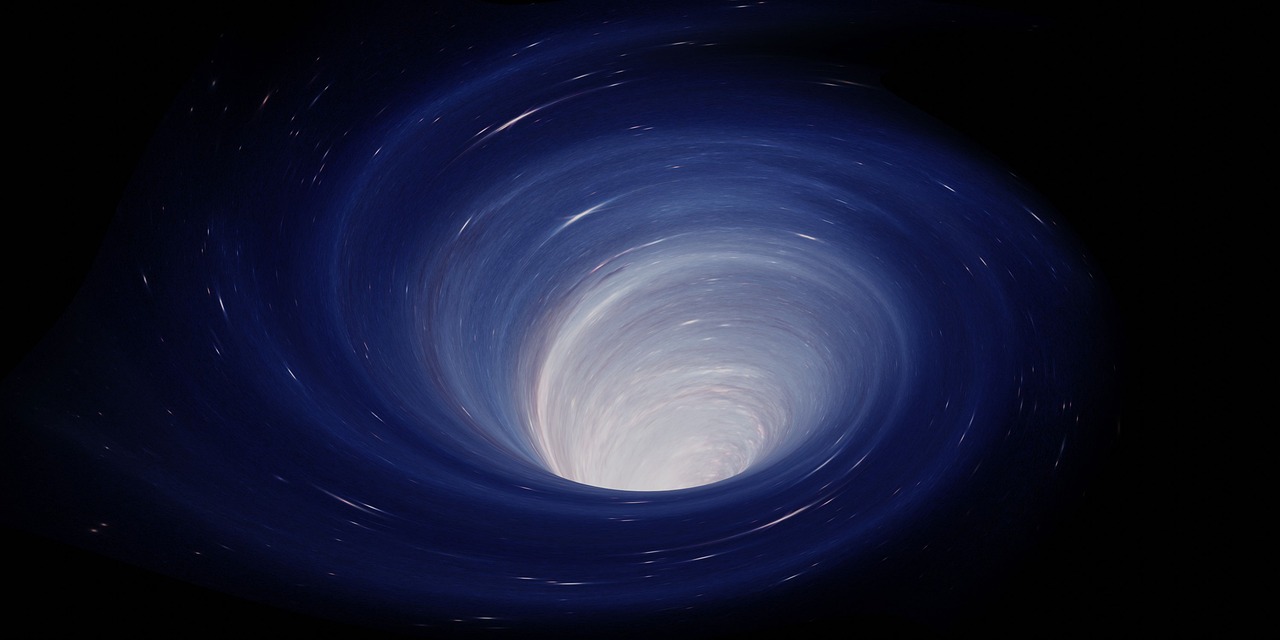
Entanglement and Interconnectedness
Quantum entanglement is one of the most mind-bending phenomena in quantum physics. Imagine two particles that are born together, like twins, and no matter how far apart they drift, they remain connected in a way that defies our conventional understanding of distance and separation. This interconnectedness suggests that the universe is not just a collection of isolated objects, but rather a complex web where everything is intricately linked. When one particle is altered, its entangled partner responds instantaneously, regardless of the space between them. It's as if they are communicating through a secret language that transcends the physical barriers of our reality.
This phenomenon challenges our traditional views about the nature of reality. We often perceive the world as a series of separate entities, each operating independently. However, entanglement hints at a deeper truth: that on a fundamental level, everything is connected. This idea resonates with various philosophical perspectives that assert the importance of unity and interconnectedness in understanding existence. It raises profound questions about the fabric of reality itself, suggesting that perhaps our perceived separateness is an illusion.
To illustrate this concept further, consider the following points:
- Instantaneous Connection: Entangled particles can affect each other instantly, even at vast distances, suggesting a form of communication that happens faster than the speed of light.
- Non-locality: This term refers to the idea that particles do not need to be in close proximity to influence one another, challenging our conventional notions of locality.
- Implications for Reality: If everything is interconnected at a quantum level, what does that mean for our understanding of reality? Are we all part of a larger, interconnected whole?
As we delve deeper into these questions, we find ourselves grappling with the implications of entanglement on our understanding of consciousness and existence. If entangled particles can influence each other across distances, could consciousness itself be a form of entanglement? Are our thoughts and experiences interconnected in ways we have yet to comprehend? These inquiries not only challenge the boundaries of science but also invite philosophical exploration into the nature of reality and our place within it.
In essence, quantum entanglement serves as a reminder that reality might be far more complex than we can imagine. It encourages us to reconsider our assumptions about separateness and individuality, opening the door to a more interconnected understanding of existence. As we continue to explore these concepts, we may find that the universe is not just a random collection of particles, but a beautifully woven tapestry of relationships and connections, hinting at a greater purpose and unity in the cosmos.
- What is quantum entanglement? Quantum entanglement is a phenomenon where two or more particles become interconnected in such a way that the state of one particle instantly influences the state of another, regardless of the distance separating them.
- How does entanglement challenge our understanding of reality? It suggests that our perception of separateness may be an illusion, and that everything in the universe could be interconnected at a fundamental level.
- What are the implications of entanglement for consciousness? Some theorists propose that consciousness itself may be a form of entanglement, leading to questions about the nature of perception and reality.
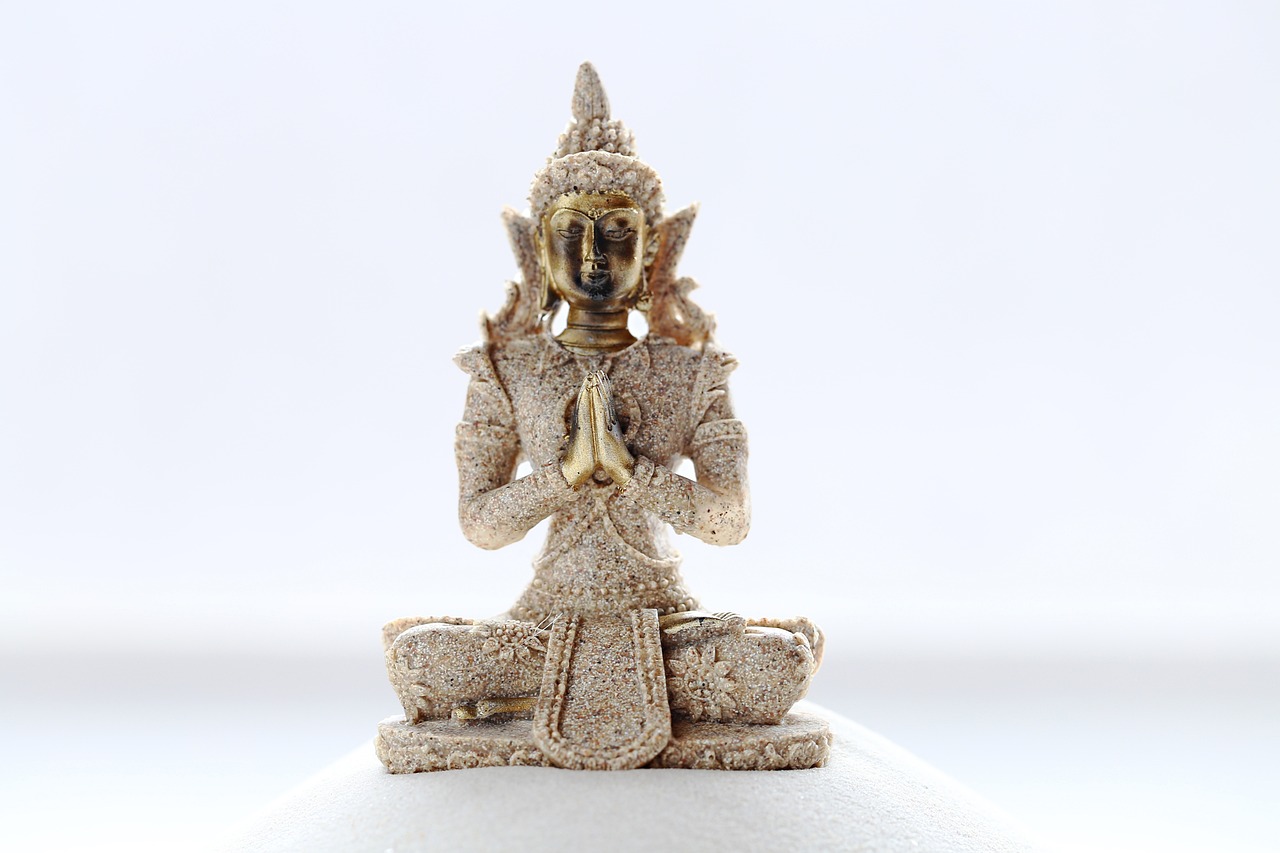
Philosophical Implications
The intersection of quantum mechanics and philosophy opens up a Pandora's box of questions that challenge our traditional understanding of existence. At the heart of this discussion lies the concept of determinism versus free will. If our reality is indeed a simulation, as the simulation hypothesis suggests, then what does that mean for our choices? Are we merely following a preordained script laid out by some advanced civilization, or do we possess the freedom to shape our own destinies? This dilemma has profound implications for how we perceive our lives and the choices we make.
Moreover, the implications of quantum mechanics push us to reconsider the nature of consciousness. If consciousness is fundamental to reality, as some theories propose, then it might play a crucial role in shaping the universe itself. This leads us to ponder whether our thoughts and intentions can influence the fabric of reality. Are we, in some sense, co-creators of our experience? This question echoes the sentiments of various philosophical traditions, including idealism, which posits that reality is mentally constructed, and materialism, which views consciousness as a product of physical processes.
One cannot ignore the allure of panpsychism, a view that suggests consciousness is a fundamental property of all matter. If this perspective holds merit, it implies that everything—from the smallest particle to the largest celestial body—has some form of consciousness. This interconnectedness could further imply that our perceived separateness is an illusion, a mere byproduct of our limited understanding. Such ideas challenge the very core of how we define existence and our place within it.
In a simulated reality, the lines between observer and observed blur, leading to a profound philosophical inquiry: does the act of observation create reality? This question is reminiscent of the observer effect in quantum mechanics, where the act of measuring a particle influences its state. If our consciousness plays a role in shaping reality, then we must consider the ethical implications of our thoughts and actions. Are we responsible for the reality we create, or are we simply players in a game designed by others?
Ultimately, the philosophical implications of the intersection between quantum physics and the simulation hypothesis compel us to reevaluate our understanding of existence. They challenge us to confront deep-seated beliefs about free will, consciousness, and the very nature of reality. As we navigate this complex landscape, we may find that the answers are not as clear-cut as we once thought, prompting us to embrace uncertainty and explore the mysteries that lie ahead.
- What is the simulation hypothesis? The simulation hypothesis posits that our perceived reality may be an artificial simulation created by advanced civilizations.
- How does quantum mechanics challenge our understanding of reality? Quantum mechanics introduces concepts like superposition and entanglement, which suggest that reality may not be as straightforward as we perceive it.
- What are the implications of the observer effect? The observer effect implies that the act of observation can alter the state of a particle, leading to questions about the role of consciousness in shaping reality.
- What is panpsychism? Panpsychism is the philosophical view that consciousness is a fundamental property of all matter, suggesting that everything has some form of consciousness.

Consciousness and Reality
When we dive into the relationship between consciousness and reality, we find ourselves standing at the crossroads of science and philosophy. It's a bit like trying to catch smoke with your bare hands—both concepts are elusive and intertwined in ways that challenge our understanding of existence. The question arises: does our consciousness shape the reality we experience, or is it merely a spectator observing a pre-existing universe? This inquiry is not just a philosophical musing; it has profound implications for how we perceive our lives and the world around us.
To grasp the significance of consciousness in shaping reality, we can look at various theories that suggest consciousness is not just a byproduct of brain activity but rather a fundamental aspect of the universe. Some thinkers propose that consciousness is the very fabric of existence, influencing the physical world in ways we are just beginning to understand. Imagine consciousness as a painter, and reality as a canvas; the strokes of awareness and perception create the picture we call life. This analogy helps illustrate the dynamic interplay between our inner experiences and the outer world.
One fascinating avenue of exploration is the idea that consciousness might play a role in the actual creation of reality. This perspective aligns with some interpretations of quantum mechanics, where the act of observation seems to affect the state of particles. If our consciousness can influence the quantum realm, could it also shape the larger reality we experience? This thought leads us to consider the implications of the simulation hypothesis, which posits that our perceived reality might be a sophisticated construct. If this is true, then consciousness could be the key to unlocking the mysteries of our existence within this simulation.
Moreover, various philosophical perspectives contribute to our understanding of consciousness and reality. Here are a few notable viewpoints:
- Idealism: This philosophy suggests that reality is fundamentally mental, and consciousness shapes the material world.
- Materialism: In contrast, this view posits that consciousness arises from physical processes in the brain, making it a byproduct rather than a creator.
- Panpsychism: This intriguing perspective proposes that consciousness is a property of all matter, suggesting a universal interconnectedness.
Each of these perspectives offers a unique lens through which to examine our existence within a possible simulation. They challenge us to reconsider what we know about consciousness and its role in crafting the reality we inhabit. As we navigate these complex ideas, it becomes clear that understanding consciousness is not just an academic exercise; it is a journey that could reshape our fundamental beliefs about life, existence, and our place in the universe.
In conclusion, the relationship between consciousness and reality is a profound and multifaceted topic that invites us to question everything we think we know. It encourages an exploration of the depths of our awareness and its potential impact on the world around us. As we ponder these questions, we may find that the answers lead us to a greater understanding of ourselves and the universe we inhabit, perhaps even revealing that we are not merely observers but active participants in the grand tapestry of existence.
- What is the simulation hypothesis? The simulation hypothesis suggests that our reality may be an artificial simulation created by advanced civilizations.
- How does consciousness relate to reality? Consciousness may influence or shape our perception of reality, raising questions about whether we create our experiences or simply observe them.
- What are the philosophical perspectives on consciousness? Perspectives include idealism, materialism, and panpsychism, each offering different interpretations of the nature of consciousness and reality.
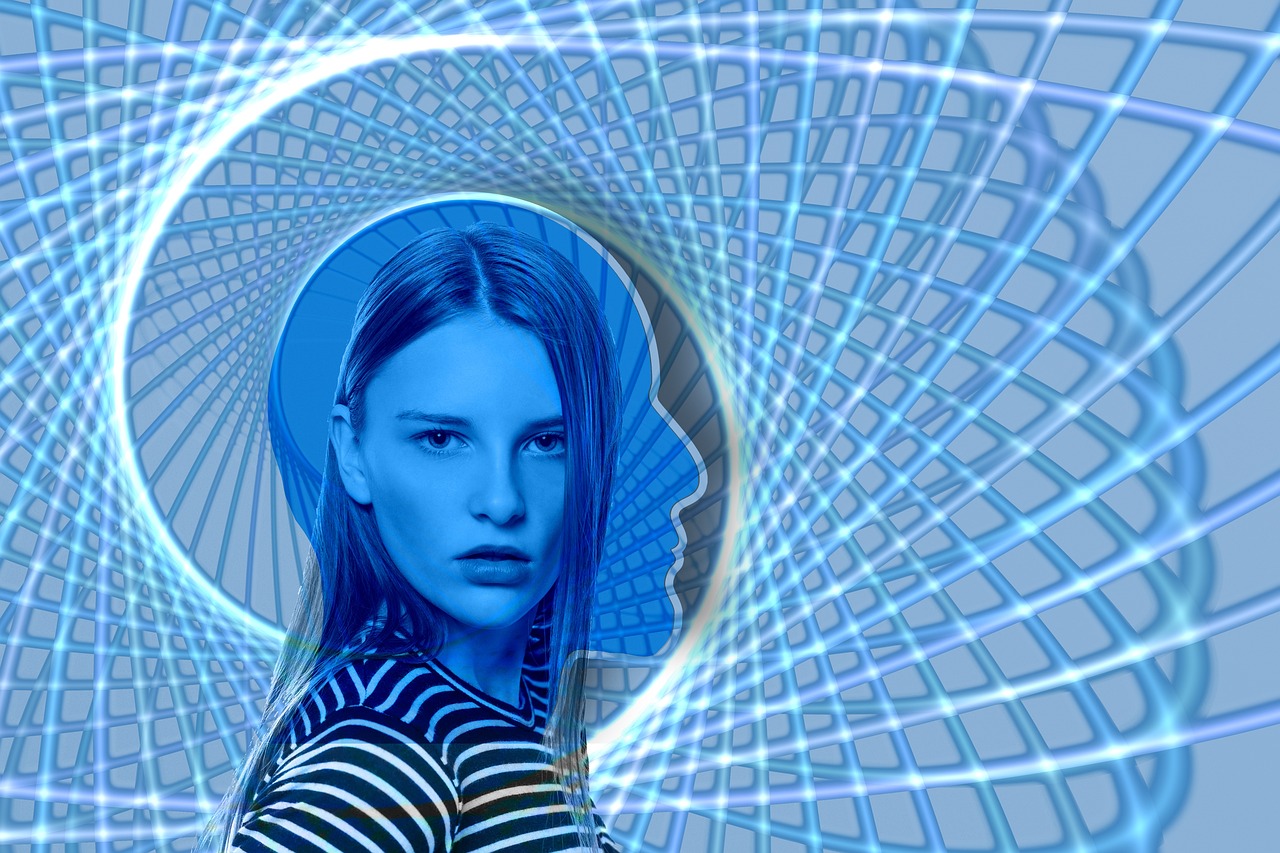
The Role of Consciousness
When we dive into the intriguing waters of consciousness, we find ourselves in a realm that is as enigmatic as it is essential to understanding our existence. Consciousness isn't just a passive observer of reality; it seems to play a pivotal role in shaping it. Imagine for a moment that consciousness is like a painter, wielding a brush to create the canvas of reality. This metaphor highlights the idea that our perceptions and experiences might not merely reflect the world around us but actively contribute to its formation.
Many theories suggest that consciousness could be fundamental to the universe itself. For instance, some scientists and philosophers argue that consciousness is not just a byproduct of brain activity but rather a primary element of the cosmos. This perspective leads us to profound questions: Is consciousness a universal trait, present in all forms of existence? Does it extend beyond human experience, perhaps even to inanimate objects? Such inquiries challenge our traditional views and push us to reconsider what it means to be aware.
Furthermore, the relationship between consciousness and reality raises the question of whether we create our reality through our thoughts and perceptions. This notion aligns closely with the simulation hypothesis, which posits that our perceived reality might be an artificial construct. If we accept that consciousness can influence reality, then the implications are staggering. It suggests that our individual and collective consciousness could be programming the very simulation we exist in.
To explore this idea further, let’s consider a few key points:
- Consciousness as a Creator: If consciousness shapes reality, our thoughts and beliefs could have a direct impact on the world we experience.
- The Interconnectedness of Consciousness: Just as quantum entanglement shows that particles can be interconnected, could our consciousness also be linked in ways we don’t yet understand?
- The Observer Effect: This phenomenon in quantum mechanics suggests that the act of observation can change the state of a particle. What if our conscious observation affects the fabric of reality itself?
As we ponder these concepts, we must also consider the philosophical implications. If consciousness is indeed a fundamental aspect of reality, then it challenges the traditional materialistic view, which sees consciousness as a mere byproduct of physical processes. Instead, we might need to embrace a more holistic approach, one that recognizes the profound connection between mind and matter.
In conclusion, the role of consciousness in shaping reality is a captivating topic that intertwines philosophy and quantum physics. It invites us to rethink our understanding of existence and consider the possibility that we are not just passive inhabitants of a simulated world, but active participants in its creation. As we continue to explore these ideas, we may uncover deeper truths about our place in the universe and the nature of consciousness itself.

Philosophical Perspectives
When we dive into the surrounding consciousness and reality, we find ourselves navigating a fascinating landscape filled with diverse interpretations and theories. Each philosophical stance provides unique insights into how we perceive our existence, particularly in the context of the simulation hypothesis. For instance, idealism posits that reality is fundamentally mental; in this view, consciousness creates the world rather than merely perceiving it. Imagine a painter who brings a blank canvas to life with vibrant colors and intricate designs—this metaphor encapsulates the idealist perspective where consciousness is the artist, shaping the world around us.
On the flip side, materialism asserts that the physical world is the primary reality, and consciousness arises from material interactions. This perspective can be likened to a clock, where the gears and springs (the material components) work together to create the ticking sound (consciousness). While materialism grounds us in the tangible, it raises questions about the essence of consciousness itself: is it just a byproduct of our physical makeup, or is there something more profound at play?
Then we have panpsychism, a philosophical view that suggests consciousness is a fundamental aspect of all matter. This theory proposes that everything, from the smallest particle to the largest galaxy, possesses some form of consciousness. Think of it as a web connecting all things, where every strand contributes to the tapestry of existence. If panpsychism holds any truth, it implies that our reality is not merely a simulation created by higher beings, but rather a rich and interconnected experience where consciousness permeates every corner of the universe.
These perspectives raise critical questions: If consciousness is fundamental, does it mean that our reality is inherently subjective? Can multiple consciousnesses coexist in a simulated environment, each experiencing their version of reality? The implications are profound, as they challenge our understanding of free will, determinism, and the nature of existence itself.
To further explore these philosophical perspectives, let’s look at a comparison table that highlights the key differences:
| Philosophical Perspective | Key Idea | Implications |
|---|---|---|
| Idealism | Reality is fundamentally mental; consciousness shapes the world. | Challenges materialism; consciousness is primary. |
| Materialism | The physical world is primary; consciousness arises from material interactions. | Focus on the tangible; raises questions about the nature of consciousness. |
| Panpsychism | Consciousness is a fundamental aspect of all matter. | Suggests interconnectedness; challenges the notion of separateness. |
In conclusion, the exploration of these philosophical perspectives not only enriches our understanding of consciousness and reality but also deepens our inquiry into the possibility of living in a simulation. As we navigate these complex ideas, we may find that the answers to our most profound questions lie not in the nature of reality itself but in our interpretation of it.
- What is the simulation hypothesis?
The simulation hypothesis suggests that our perceived reality may be an artificial simulation created by advanced civilizations. - How does quantum mechanics relate to the simulation hypothesis?
Quantum mechanics challenges traditional notions of reality, raising questions about the nature of existence and the role of consciousness. - What are the main philosophical perspectives on consciousness?
Key perspectives include idealism, materialism, and panpsychism, each offering unique insights into the nature of reality and existence. - Can consciousness exist independently of the physical world?
This question is central to debates in philosophy, particularly within idealism and panpsychism.
Frequently Asked Questions
- What is the simulation hypothesis?
The simulation hypothesis suggests that our entire reality could be an artificial simulation created by a more advanced civilization. Imagine playing a video game so immersive that you forget it's just a game; that's the essence of this idea! It raises questions about our existence and what it truly means to be conscious.
- How does quantum mechanics relate to the idea of a simulated reality?
Quantum mechanics introduces concepts like superposition and entanglement, which challenge our traditional views of reality. For instance, particles can exist in multiple states at once until observed, hinting that our understanding of what is 'real' might be fundamentally flawed, much like how a simulation might work.
- What is the observer effect in quantum mechanics?
The observer effect refers to how the act of observing a particle can change its state. This phenomenon invites intriguing philosophical discussions about whether our consciousness plays a role in shaping reality, akin to how a camera can capture a moment but also alter it by its very presence.
- Can you explain quantum entanglement?
Quantum entanglement is a fascinating phenomenon where particles become interconnected, so the state of one instantly influences the other, regardless of the distance separating them. This challenges our understanding of separateness in the universe and suggests that everything might be more interconnected than we realize, much like characters in a story whose fates are intertwined.
- What philosophical implications arise from quantum mechanics?
Quantum mechanics prompts debates about determinism, free will, and the nature of consciousness. It makes us question whether we are merely observers in a predetermined simulation or if we have the power to influence our reality, similar to how a writer shapes a narrative.
- How does consciousness relate to reality?
The relationship between consciousness and reality is complex. Some theories propose that consciousness might create reality rather than just perceive it. This suggests that our thoughts and awareness could actively shape the world around us, much like an artist brings a canvas to life with their imagination.
- What are some philosophical perspectives on consciousness?
Philosophical perspectives like idealism, materialism, and panpsychism offer various interpretations of consciousness and reality. Idealism suggests that reality is fundamentally mental, while materialism posits that everything is physical. Panpsychism, on the other hand, proposes that consciousness is a fundamental aspect of all matter. Each perspective provides unique insights into our existence, especially within the context of a potential simulation.

